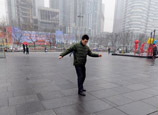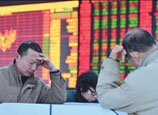
BEIJING, Feb. 1 (Xinhua) -- China's deputy foreign minister Cui Tiankai urged a comprehensive understanding of the Group of Twenty (G20) tasks, according to a statement by the Foreign Ministry on Friday.
Cui made the remarks on Thursday in Shanghai at a seminar on G20 affairs attended by China and Australian experts.
G20 set a framework of achieving strong, sustainable and balanced economic growth at a Pittsburgh summit in 2009 and the bloc played a positive role in coordinating macro economic policy, Cui said.
He added that currently there exists the view that the core task of the framework is to achieve balanced economic growth.
Cui, who is the Chinese coordinator of G20 affairs, pointed out that the view is one-sided and imbalanced.
He said, first of all, strong growth is the premise and basis for sustainable and balanced economic growth and seeking new sources for growth is G20's priority.
He noted that even unbalanced growth is better than balanced recession.
Secondly, Cui said overemphasizing the trade and current account imbalances is an act to blame the appearance and results of market behavior as the cause of the economic imbalance.
He explained that the fundamental imbalance of the world economy lies in the imbalance of the economic structure, economic governance, international rule-making and North-South development.
He said that blindly asking others to intervene in the market behavior, to reduce exports and to appreciate currency is politicizing economic issues.
Thirdly, Cui said that the most likely consequences of excessive overstating balanced growth is deteriorating the atmosphere of cooperation among the world's major economies, encouraging protectionism, affecting process of adjusting economic structure and ultimately damaging interests of all G20 members.
China has always advocated G20 members to work together to achieve strong growth, Cui said. He urged an objective, professional, mature macroeconomic policy coordination of the G20, as well as a comprehensive understanding, implementation and constant improvement of the framework of achieving strong, sustainable and balanced economic growth.
















 'Wedding' for two old men in Beijing
'Wedding' for two old men in Beijing


![]()
